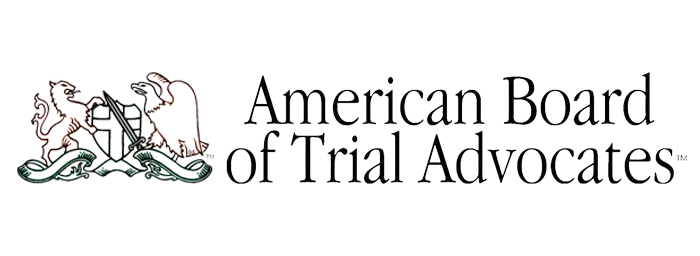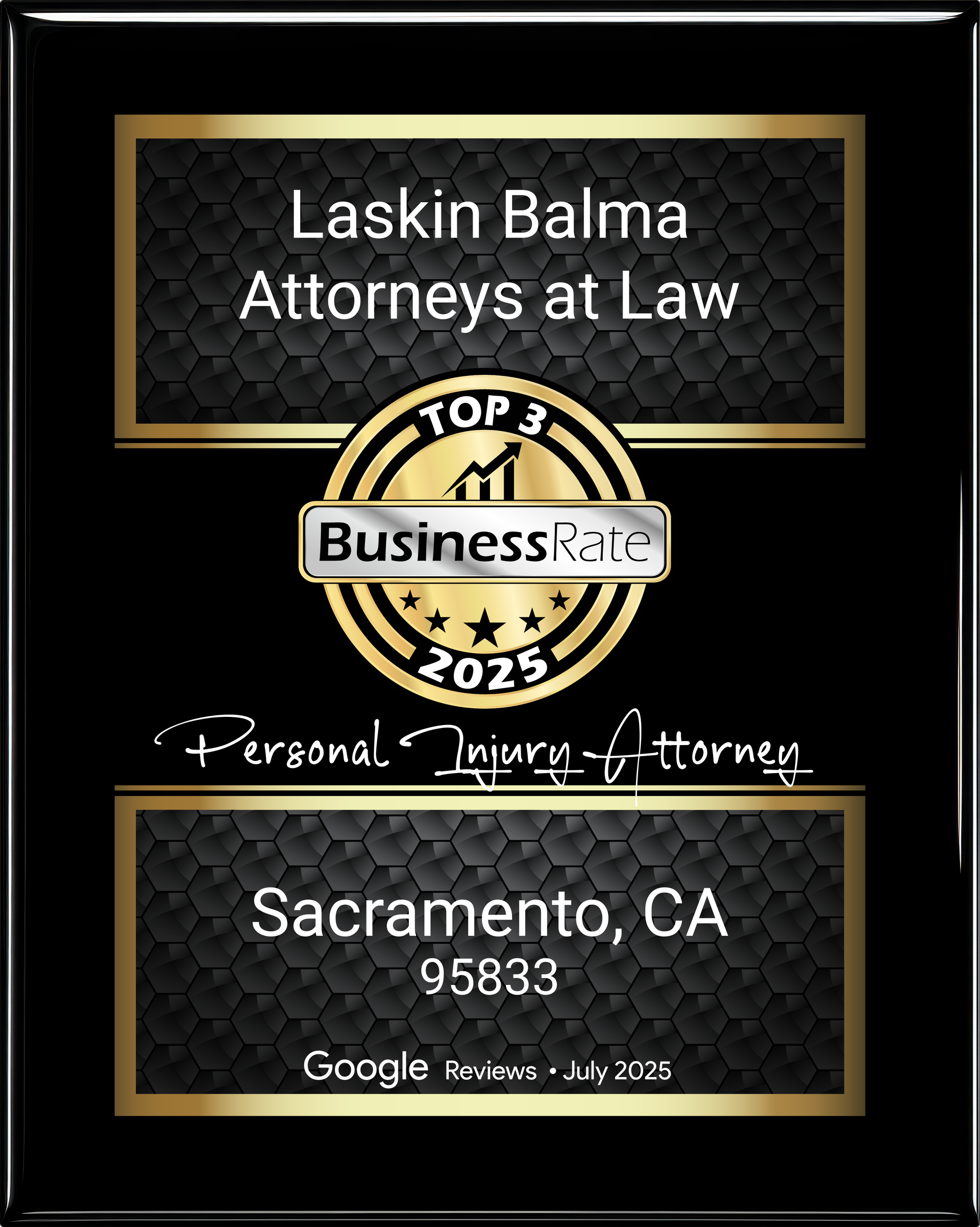Big results.
Boutique care.
Local Sacramento and Northern California personal injury lawyers recovering tens of millions in compensation for our clients — with the personalized, attentive service you deserve.
Case Studies



Our local attorneys bring decades of trial experience, fierce advocacy, and genuine compassion to every case.




Our Practice Areas.
We focus exclusively on personal injury matters, providing compassionate advocacy and proven results across a wide range of cases. Here’s a look at our top areas of expertise.
Our practice areas.
We approach every legal matter with a broad perspective and a sharp focus, integrating insights across our practice areas to deliver unparalleled results for our clients.
Every client matters. Every case matters.
We know what’s at stake when you or your family have been harmed — and we pour everything into fighting for the justice and compensation you deserve.
Genuine care, every step of the way
At Laskin Balma, you’re never just a case number. We take the time to understand your story, tailor our approach to your needs, and stand beside you every step of the way.
Aggressive courtroom advocacy when it counts
With decades of combined trial experience, our attorneys are known for taking on complex, high-stakes cases and achieving results — even against powerful insurance companies and corporations.
Tens of Millions Recovered for Our Clients
We’ve secured life-changing compensation for injury victims across California, helping them recover medical costs, lost wages, and more — so they can move forward with confidence.
Frequently Asked Questions
How do I know if I have a personal injury case?
How long do I have to file a claim in California?
What is my case worth?
Why is it important to hire a Local attorney?
“The attorneys and staff at Laskin Balma really listened to my concerns and experience. I am so happy a friend recommended them to me.”
They were so patient with me and spent a lot of time fighting for my case. I truly appreciated their expertise and professionalism. I continued to recommend them to my family and friends.
Michelle C.
"This office is very professional and supportive and provide exceptional service."
Nothing but praise for Laskin Balma. I am grateful for their service.
Glenn C.
What our Clients Say

"Stephen is an asset to our company. He skillfully reviews and negotiates multimillion-dollar contracts, he artfully drafts subcontracts and leases, and he has successfully represented us in court and before municipal boards. He is an accomplished lawyer that is always there when we need him. He is our confidant and friend."
Furino & Sons Inc. (Brothers Four)
"It is truly our pleasure to recommend Stephen to any individual or corporation looking for highly skilled legal counsel. He has represented us on a variety of corporate legal matters and he is a master with both contract and lease negotiations, always offering exceptional strategic advice. More recently, he represented us in front of the Township Planning Board and helped us achieve our desired results when it seemed impossible. We highly endorse Stephen both personally and professionally."
HEC Holding Co., LLC
"Stephen has successfully represented our company’s interests in several matters involving intricate fact patterns and novel legal theories. In one, a particularly aggressive plaintiff was convinced by Stephen to voluntarily dismiss a lawsuit in which it sought significant monetary damages. These favorable outcomes have resulted from Stephen’s thorough and careful review of all facts and circumstances and his dedication to the best interests of his client. In every matter in which we have retained Stephen he has sought to obtain the best possible result in the shortest possible time. We recommend Stephen without reservation."
RPM Development Group
What sets your approach apart?
Our attorneys combine academic rigor, industry leadership, and a deep understanding of complex legal landscapes to deliver strategies uniquely tailored to each client.
How do you handle intricate legal challenges?
We thrive on complexity, leveraging decades of experience to uncover solutions others might miss. Every case is approached with precision, diligence, and creativity.
What kind of communication can clients expect?
We prioritize direct and consistent communication, offering clear updates and actionable insights throughout the legal process, so you remain confident and informed.
How do you approach long-term legal partnerships?
We build enduring relationships by aligning with our clients’ long-term objectives, acting as trusted advisors who guide and support through every phase of their ventures.
What can I expect during my consultation?
Your initial consultation will involve an in-depth discussion of your goals and challenges, allowing our attorneys to outline tailored strategies and next steps. See below for a typical process cadence.
Strategize
We craft a clear, customized plan, setting milestones and building in flexibility to adapt as your case evolves.
Advocate
We push your case forward with determination, managing the process with precision and always advocating for your best interests.
Evaluate
We conduct a thorough analysis of your situation, identifying key risks, priorities, and opportunities.
We guide you to resolution, achieving outcomes that are both effective and aligned with your long-term goals.
Resolve
Let’s Talk About Your Case
Your recovery starts with a conversation. Contact our team today for a free, no-obligation case evaluation.







